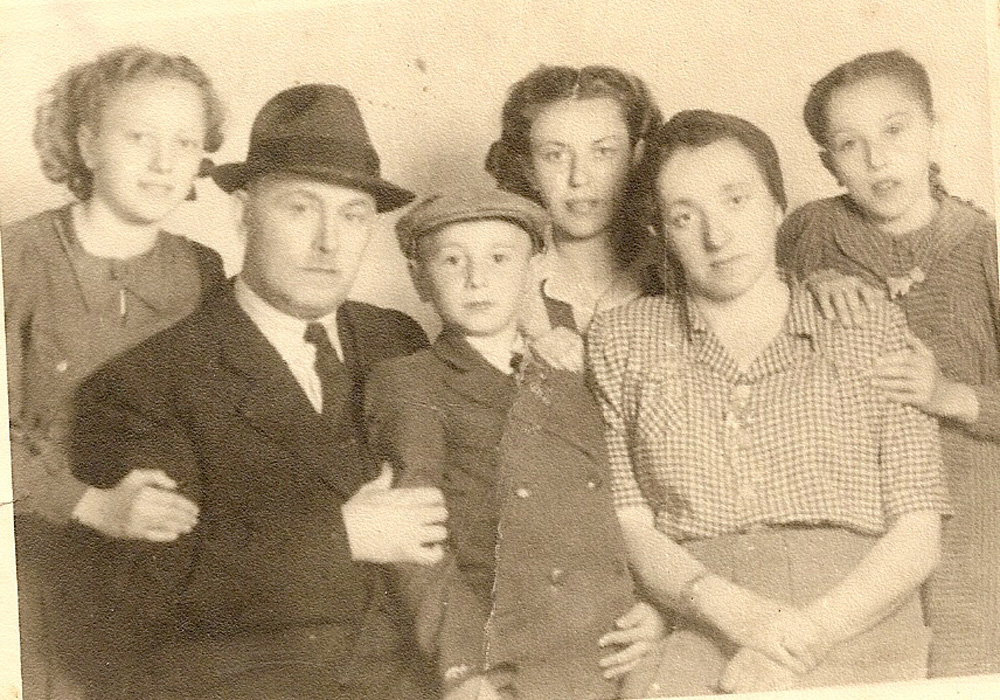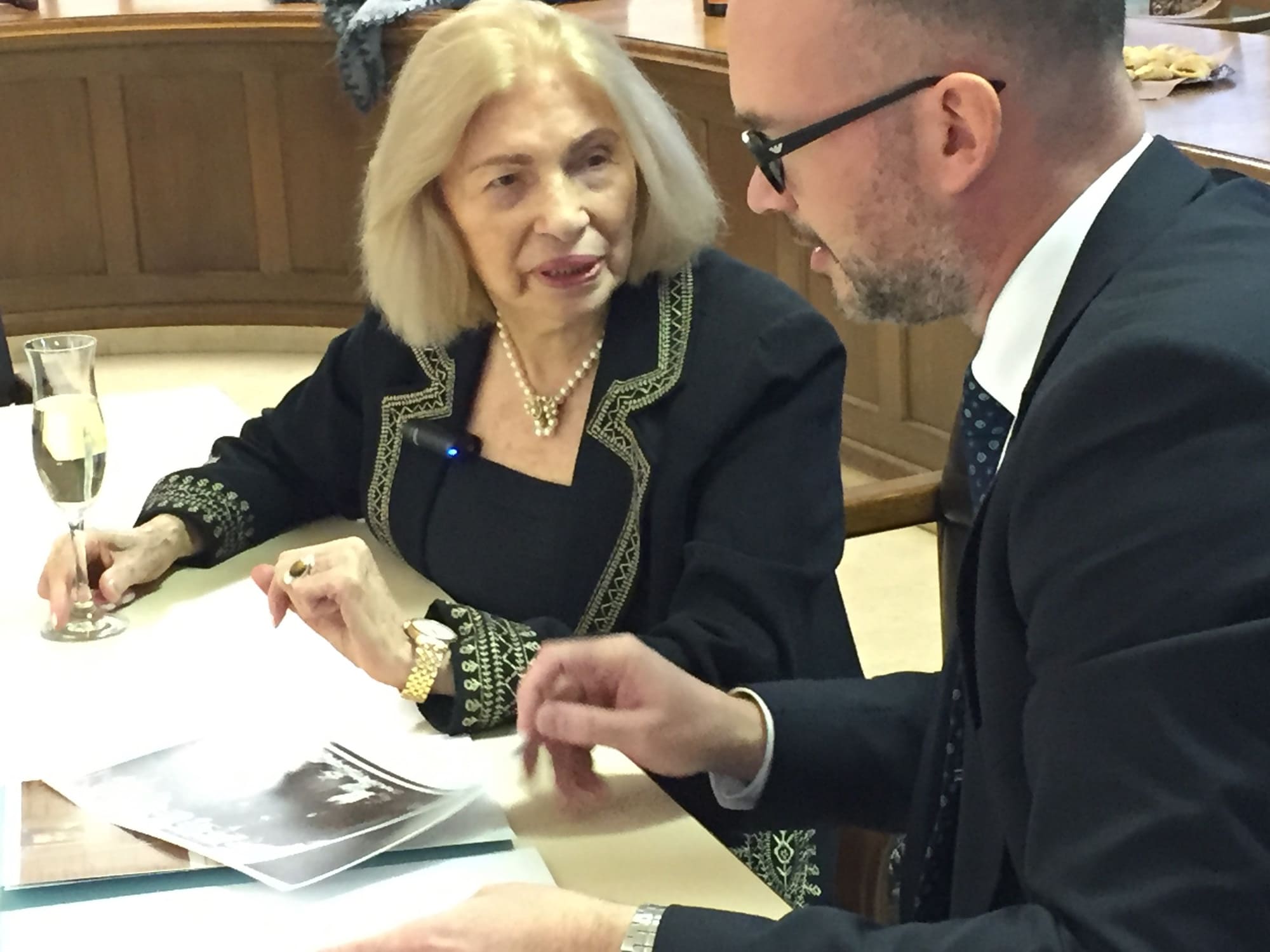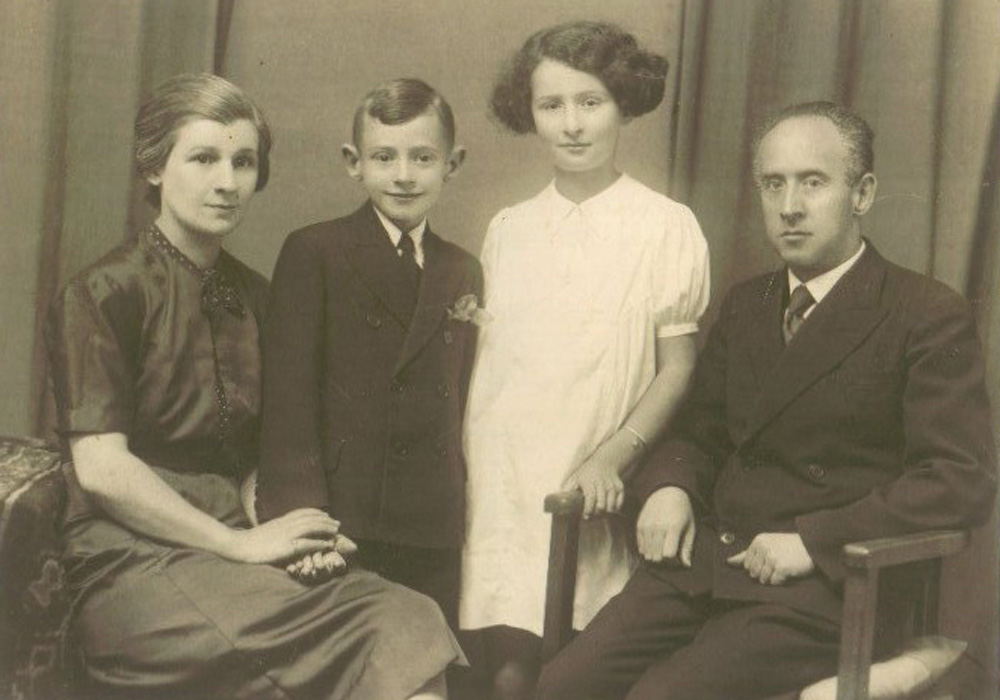
honoring
They experienced terrible things, survived the Shoah and came back to Geislingen 70 years later - wonderful people.“Believe me, it’s all true”.
(Miryam Sobel, concentration camp survivor – first from right)
Only in the personal encounter with individual fates and biographies one gets access to the horrors and terrors of the Shoah. Here the numbers are not called, but the personal fates of Jewish women and girls are told. Their great concern is that their stories be heard and not forgotten. “This must never happen again!” is their urgent reminder and this obliges us all. At this point, the women and their children who we were able to meet personally have their say.
Who is number 20629? Rosalie Simon had this number. Miryam Sobel was 20572. They can still recite these numbers in their sleep. Quite a few women have spoken about their lives, written books – and yet some could not speak at all about this terrible time in their lives. Tragically, one or the other did not find their way back to life at all. Often only one person from a large family survived. It is all the more beautiful to read how these individuals today have many, many descendants who celebrate their togetherness. For them, “family” is the greatest treasure.
We hope to constantly expand this page so that more and more names are filled with life.

Manci Kaufmann
born as Maria / Miryam Kaufmann, married Sobel.
In 1938 the Wehrmacht occupied Slovakia in the run-up to the annexation. Neighbors hid the whole family in the attic for a few days. In May 1944 they were deported to the Mattisolko ghetto and in June to Ausschwitz. There they stayed for six weeks. During this time Miryam had pneumonia, which she survived – despite the circumstances of prisoner life in Barrack No. 4.

Regina Kaufmann
Rifka / Rebekka Kaufmann, née Schneid
Rifka came with her daughter Miryam to the labor camp in Geislingen and survived the Shoah. She had to work hard and survived thanks to the food parcels that Miryam secretly received and shared with her mother. Neither in Auschwitz nor in Geislingen was it allowed to become known that mother and daughter were together here, otherwise they would have been separated – following the harassment of the concentration camp system – never to be seen again.

Helen Ickel
born as Hanna Jeckel, married Mann.
Hanna was born in November 1927 in Rona des Jos, later moving to Sighet, Maramures, in the Tisza region, Romania. Her father was a Hebrew teacher, but he could hardly support his family. She came from a very religious family, which influenced her until her old age. In 1944 she was taken to Auschwitz together with 20,000 Jews from Sighet.

Lenka Lebovics
married Weksberg
My story begins in Teresva, in the Carpathians. I come from a family of six children, five girls and one boy, Helen, Charlotte, Lenka, Theresa, Rosalie, my late brother William and my parents, Israel and Regina. We were a very close-knit family and enjoyed a normal life.

The 5 Lebovics Sisters
Helen, Charlotte, Lenka, Rajzi and Rosalie survive the Shoah together. This is their story, written down by Rosalie in her book “Girl in a Striped Dress”, 2014. Her father, Israel Lebovic, born in 1897, was a kind, helpful fruit wholesaler. He worked a lot and therefore did not have much time for the family except on Shabbat, when everyone celebrated together. In 1919 he married Regina Meyerovitch, born in 1899, a strict Orthodox, who was a housewife and mother to her family of 9.

Hilda Lustig
married Simon
Hilde had happy memories of her childhood, growing up with her extended family including her mother, father, brother, grandparents, aunts and uncles. Hilde’s former life, recounted as if from a fairy tale, vanished as if at the drop of a hat, never to return. For the rest of her life, Hilde was left with deep and dark memories, some of which had their origins in your city, a topic which she preferred to avoid discussing with her children.

Berta Fischer
married Weiss
Records of personal interviews: “I was born and raised in the town of Rachov, then CSSR, now Ukraine. My father was the head of the Jewish community there. On the last day of Passover, all Jews were gathered in a school. From there we were taken to the Matezalka ghetto and then deported to Ausschwitz. In Ausschwitz my father (49 years old) and my mother (51 years old) were immediately gassed. I had never been back to Ausschwitz after the war. I couldn’t.”
„... since then I was only number 20629“
- Rosalie Simon


